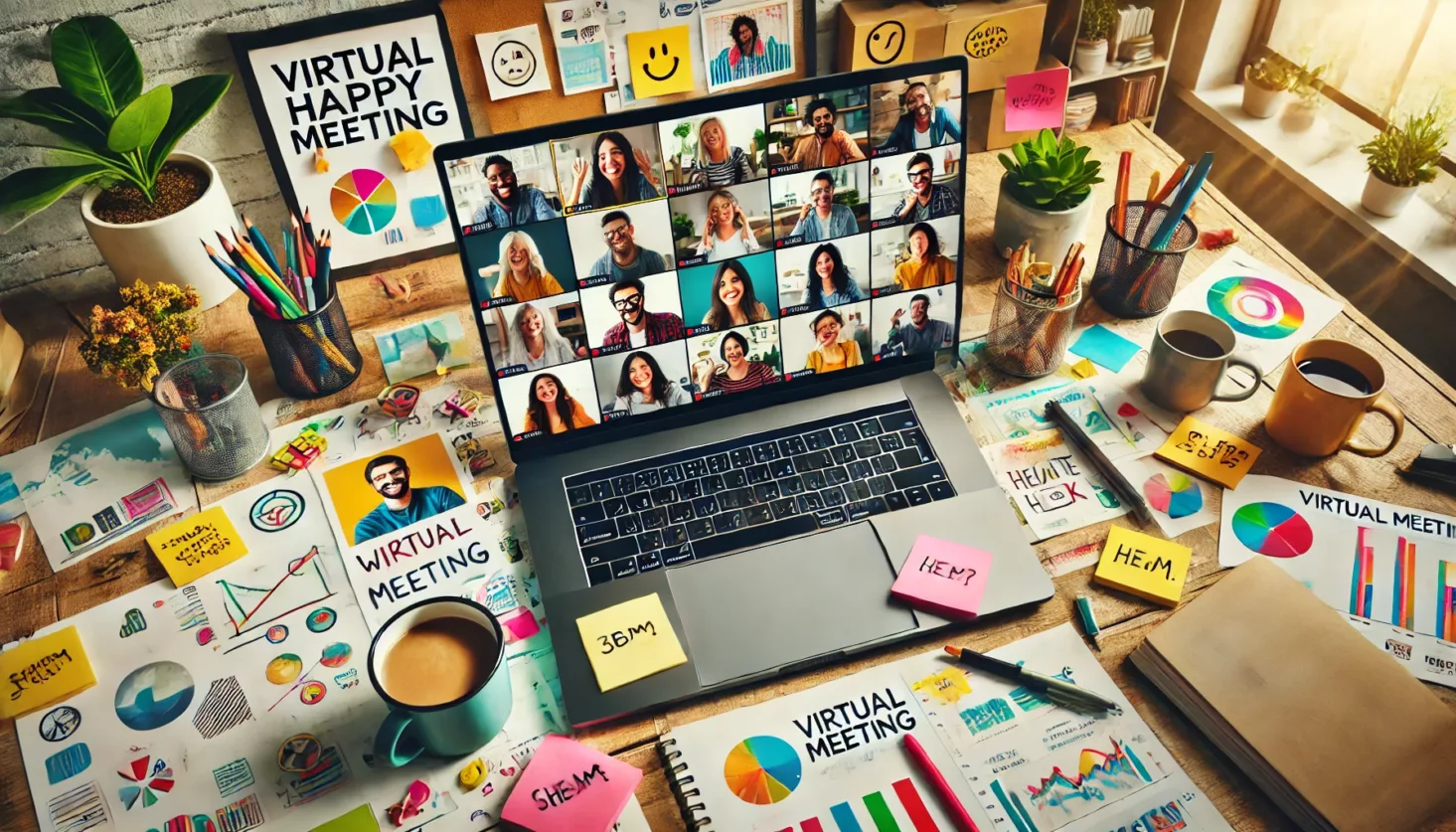
Remote Team Building Ideas
The rise of remote work has transformed the way organisations collaborate and maintain team dynamics. From 2019 to 2023, remote work adoption surged, with hybrid and fully remote models becoming common across industries. In this article, we explore how companies can engage remote employees through team-building activities, fostering better communication, enhancing performance, and improving employee retention.
Remote Team Building Ideas
The shift to remote work was not gradual but accelerated by the COVID-19 pandemic. In 2019, only 5% of the UK workforce worked primarily from home. However, by the period between September 2022 and January 2023, 16% of UK adults reported working entirely from home, while 28% adopted a hybrid work model. These statistics demonstrate that remote work is not just a temporary response but a long-term shift for many businesses.
Regional Differences in Remote Work
The adoption of remote work has varied across regions. Scotland saw a remarkable 203.5% rise in home-based work, while Northern Ireland followed with a 56.4% increase. These figures reflect how certain areas have embraced the flexibility of remote work more than others, often due to local economic, social, and infrastructure factors.
Occupation-Based Trends
The ability to work remotely is heavily dependent on the type of occupation. Highly skilled roles that focus on knowledge work are most adaptable to remote environments:
- 69% of lawyers and accountants can work from home.
- 67% of managers, directors, and senior officials can work remotely.
- 63% of administrative and secretarial roles can be performed from home.
These roles often require tasks that can be efficiently carried out with the aid of digital tools, whether it’s managing accounts, coordinating teams, or performing clerical work.
The Income and Remote Work Correlation
Remote work also shows a correlation with income levels. Chief executives and senior officials, earning a median of £44.08 per hour, are among the most equipped for remote work. Similarly, financial managers and directors, who earn £31.38 per hour, and software development professionals, earning £21.97 per hour, demonstrate high adaptability to remote work. These roles often require autonomy and access to digital tools that support independent work, making them ideal candidates for remote setups.
The Importance of Remote Team Building
While remote work offers flexibility and autonomy, it can present challenges in terms of maintaining strong team dynamics. Virtual team building has emerged as a critical strategy for keeping remote employees engaged, connected, and aligned with organisational goals.
Virtual Team Building: Why It Matters
Effective team-building activities help bridge the gap between remote employees by fostering communication and collaboration. According to research, 75% of employees who engage in team-building activities report improved communication with peers. Furthermore, companies that prioritize team building see a 25% increase in team performance. These activities create opportunities for employees to build relationships, even when they are not physically in the same space.
In addition to boosting performance, regular team-building activities contribute to higher employee retention. Businesses that integrate team building into their culture have a 36% higher employee retention rate compared to those that don’t. This demonstrates the positive impact of team-building activities on long-term employee satisfaction and loyalty.
Popular Remote Team Building Activities
There are several popular and effective remote team-building activities that companies can adopt to foster a sense of community among their remote workers. Some of the most common ones include:
- Virtual Happy Hours These are informal gatherings where team members come together over video conferencing tools to socialize outside of work. According to reports, 27% of companies have implemented virtual happy hours to strengthen team bonds. These events create a relaxed environment where employees can engage in light-hearted conversations, share stories, and unwind.
- Online Games Gamification can be an excellent way to encourage teamwork and friendly competition. Around 33% of companies have adopted online games, such as trivia, escape rooms, or collaborative video games, as part of their remote team-building efforts. These games not only help employees work together to achieve a common goal but also provide a fun break from daily work tasks.
- Virtual Coffee Breaks Sometimes, the simplest activities have the most impact. Virtual coffee breaks, where team members hop on a quick video call to chat over coffee, have become a favorite among 33% of companies. These short, casual conversations mimic the spontaneous interactions that remote employees might miss from the physical office.
Impact of Remote Work on Company Culture
While remote work offers many advantages, it can also lead to a disconnect from company culture. Remote employees often find it challenging to feel part of the broader organisational environment. According to research, 41% of remote employees express difficulty fitting into the company culture, while 40% miss the spontaneous in-person interactions with colleagues. This underscores the need for intentional efforts to integrate remote workers into the company’s cultural fabric.
Maintaining a Strong Company Culture Remotely
Building a strong company culture remotely requires creative solutions. Regular virtual meetings, team-building exercises, and clear communication channels can help remote employees feel more connected to their peers and the company. Encouraging transparency, providing opportunities for informal conversations, and recognizing employees’ contributions can go a long way in building a cohesive team.
Companies that successfully integrate remote team-building activities into their culture see higher levels of employee satisfaction and retention. By creating opportunities for remote employees to engage in fun and meaningful interactions, businesses can prevent the feeling of isolation and build a more collaborative and supportive work environment.
Future Trends in Remote Work and Team Building
The trend toward remote work is unlikely to slow down. The proportion of UK organisations planning to include remote working as a permanent business model increased from 16% in autumn 2020 to 23% in early April 2022. This indicates that remote and hybrid working models are here to stay, and as such, companies need to invest in long-term strategies for maintaining team cohesion and employee engagement.
As remote work continues to evolve, the role of technology in team building will become even more critical. Virtual reality (VR) and augmented reality (AR) platforms could offer immersive experiences for remote team-building activities in the future, enabling employees to interact in digital environments that mimic real-world team-building exercises.
In addition, companies may increasingly use artificial intelligence (AI) tools to personalize team-building experiences based on employees’ preferences and engagement levels. This could lead to more effective team-building strategies tailored to individual teams and their unique needs.
Conclusion
Remote work has become a defining feature of the modern workforce, with significant growth in home-based and hybrid work models across various industries and regions. While remote work offers many benefits, it also presents challenges in maintaining strong team dynamics and company culture. Remote team-building activities play a crucial role in overcoming these challenges by fostering communication, improving team performance, and increasing employee retention.
By embracing popular remote team-building activities like virtual happy hours, online games, and coffee breaks, companies can create a sense of community and belonging among their remote workforce. As the future of work continues to evolve, organisations must stay ahead of the curve by exploring innovative team-building strategies that keep employees engaged, motivated, and connected, regardless of their physical location.




